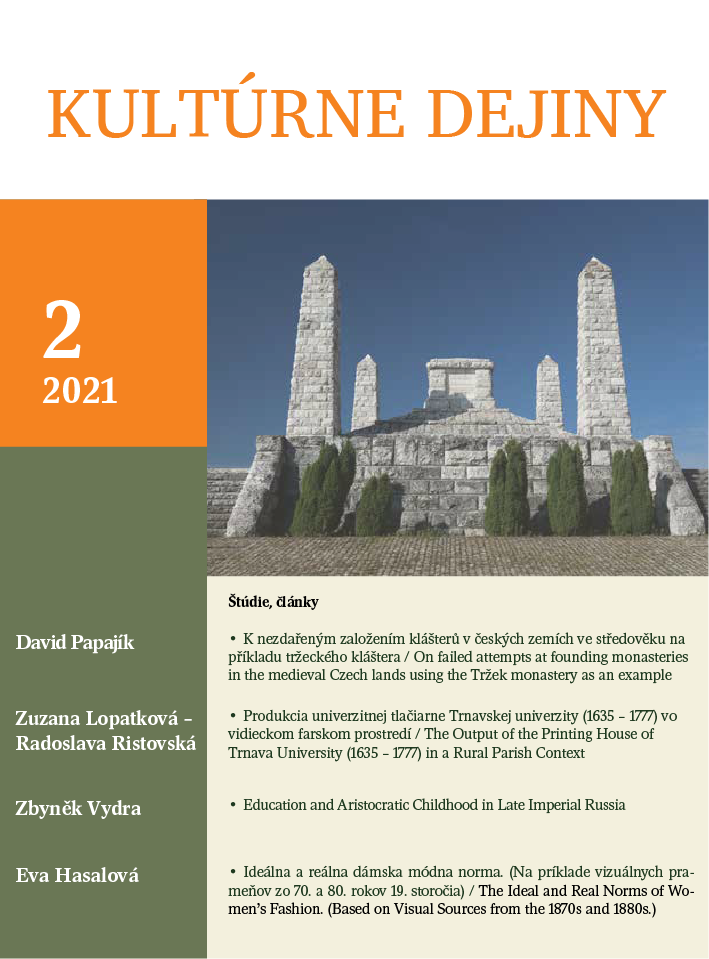K nezdařeným založením klášterů v českých zemích ve středověku na příkladu tržeckého kláštera
On failed attempts at founding monasteries in the medieval Czech lands using the Tržek monastery as an example
Author(s): David PapajíkSubject(s): Christian Theology and Religion, Cultural history, Middle Ages, 13th to 14th Centuries
Published by: VERBUM - vydavateľstvo Katolíckej univerzity v Ružomberku
Keywords: Tržek near Litomyšl; Carthusians; Albert of Šternberk; foundation; Dolany;
Summary/Abstract: The text analyses the reasons behind the failed attempts at founding monasteries In the medieval Czech lands using the monastery in Tržek near Litomyšl as a model example. It briefly introduces the monastery founder, Albert of Šternberk, the Bishop of Litomyšl. The monastery in Tržek near Litomyšl, founded in 1378, was the oldest Carthusian monastery in the Czech lands not founded by a sovereign. (King John of Bohemia founded a Carthusian monastery in Újezd near Prague in Bohemia in 1342, and the Moravian Margrave John Henry of Luxembourg founded a Carthusian monastery in Královo Pole in Brno, Moravia in 1369). Despite the meticulous care Bishop Albert afforded to the new monastery, its sustained existence proved impossible. The text analyses the main reasons behind the failed attempt at founding the monastery in Tržek and compares it to the two other failed 13th and 14th century foundation attempts in the Czech lands (the Nížkov Monastery and the King’s Throne Monastery near Vsetín).
Journal: Kultúrne dejiny
- Issue Year: 12/2021
- Issue No: 2
- Page Range: 184-199
- Page Count: 16
- Language: Czech

